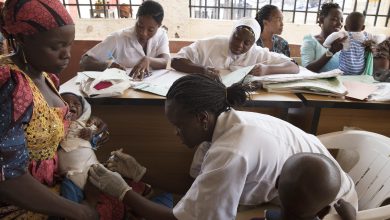A New Dawn in HIV Prevention: WHO Backing of Lenacapavir Injection Offers Real Hope
In a world still grappling with the persistent grip of HIV, the World Health Organization’s (WHO) recent endorsement of twice-yearly injectable Lenacapavir (LEN) marks a pivotal shift in the global battle against one of the most enduring public health crises of our time. Announced at the 13th International AIDS Society (IAS 2025) Conference in Kigali, Rwanda, this development is more than a medical milestone; it is a call to reimagine what global HIV prevention can look like when science, policy, and equity align.
Moving Beyond Daily Pills: Why Lenacapavir Matters
For decades, daily oral pre-exposure prophylaxis (PrEP) pills have formed the backbone of HIV prevention strategies. However, this approach, though effective, has often been impractical for the very populations that need it most. For people facing stigma, limited healthcare access, or the unpredictability of unstable living conditions, a daily regimen can become an overwhelming hurdle rather than a lifesaving solution.
Lenacapavir changes that.
With just two injections a year, this long-acting antiretroviral offers near-total protection against HIV infection. Its development is not just a scientific triumph but a victory for public health strategy. As WHO Director-General Dr Tedros Adhanom Ghebreyesus aptly put it, “While an HIV vaccine remains elusive, lenacapavir is the next best thing.”
Indeed, it is.
Lenacapavir’s trajectory has been swift and promising. Its approval by the U.S. Food and Drug Administration (FDA) earlier this year underscored its safety and effectiveness, and WHO’s rapid endorsement only strengthens the global resolve to see this solution widely implemented.
Yet, science is only as powerful as the systems that adopt it. The real test lies ahead: getting lenacapavir to the people who need it, especially in parts of the world where HIV continues to thrive amid poverty, stigma, and weak healthcare infrastructure.
WHO’s new guidelines urge governments and international health partners to act now to integrate lenacapavir into national prevention programs, fund access, and accelerate the implementation of community-based delivery models.
This is not a time for hesitation. The urgency is palpable.
The Numbers Paint a Grim Picture
The global fight against HIV has reached a plateau. In 2024 alone, the world recorded 1.3 million new infections and over 630,000 deaths. Children accounted for 120,000 of those new infections, and disproportionately, 65% of people living with HIV reside in the WHO African Region.
Behind every statistic is a human story: families fragmented, children orphaned, communities hollowed out. These figures are not just reminders of past failures; they are warning signs that our strategies must evolve, urgently.
That evolution starts with flexibility in prevention, and lenacapavir provides just that.
Perhaps the most significant promise of lenacapavir lies in its potential to empower the most marginalized: sex workers, men who have sex with men, transgender individuals, people who inject drugs, incarcerated populations, and adolescents. These groups often face disproportionate barriers to consistent medical care, including discrimination, criminalization, and economic hardship.
Lenacapavir’s discreet, long-acting format gives individuals the autonomy to protect themselves with minimal disruption to their daily lives. It’s not just medically effective, it’s socially liberating.
But for this empowerment to be realized, countries must look beyond hospital walls. Community outreach, inclusive health messaging, mobile clinics, and local partnerships will be crucial in ensuring lenacapavir reaches and resonates with the people it’s meant to protect.
WHO has rightly paired its lenacapavir recommendation with operational guidance for sustainable HIV services. In an era of fluctuating global health funding, nations can no longer afford one-size-fits-all approaches. The guidance includes frameworks for prioritizing services, monitoring disruptions, and adapting to financial constraints, all while maintaining the hard-won progress.
Such measures will be essential not just for deploying lenacapavir but for maintaining momentum in the broader fight against HIV, especially as emerging threats like monkeypox (mpox) further strain resources. Notably, WHO has now recommended routine HIV and syphilis testing for individuals presenting with suspected mpox, reinforcing the need for integrated, responsive healthcare.
What we are witnessing is a turning point, but only if the global community acts decisively. For too long, promising innovations in HIV prevention have been bottlenecked by bureaucracy, funding gaps, or political hesitancy. Lenacapavir offers a second chance, a moment to reaffirm that equity, not inertia, will drive the end of AIDS as a public health threat.
Success will depend not only on governments and donors but also on pharmaceutical transparency, fair pricing, and sustained advocacy. Activists and healthcare workers on the frontlines must be equipped and empowered to deliver these innovations with speed and compassion.
By the end of 2024, 31.6 million people were receiving antiretroviral therapy (ART), representing a notable increase from the previous year. This upward trend demonstrates what is possible when commitment and coordination align. But treatment is just one side of the coin. Prevention must now take center stage, and lenacapavir offers the most promising tool yet to close the gap.
Let this not be another missed opportunity. As Dr Meg Doherty, WHO’s Director of Global HIV, Hepatitis and STI Programs, stated, “We have the tools and the knowledge to end AIDS as a public health problem.” What’s required now is bold implementation, grounded in evidence and powered by the voices of the communities most affected.
If HIV has taught us anything, it is that scientific progress alone is not enough. It must be accompanied by political will, social justice, and the unyielding belief that every life is worth protecting, no matter who they are or where they live.
With lenacapavir, we now have a chance to write a different story. The world must not waste it.



